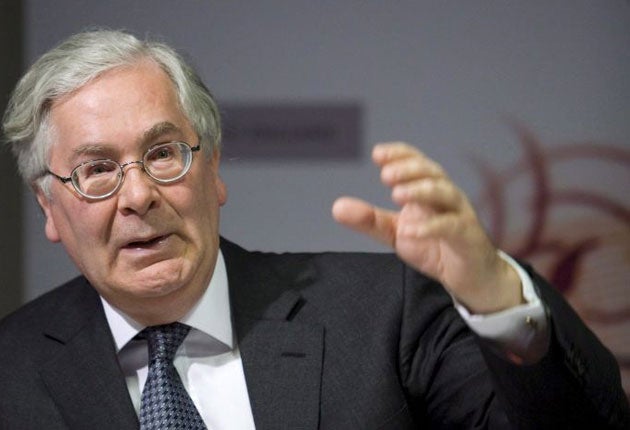The Bank of England caught financial markets by surprise by announcing yesterday that it will inject £75bn into the ailing British economy over the next four months. The sharply slowing economy and intensifying threats to the health of Britain's banks posed by the eurozone crisis will lead the Bank to extend its £200bn quantitative easing (QE) programme – effectively printing money.
"This is the most serious financial crisis we've seen at least since the 1930s, if not ever," warned the Bank's Governor, Sir Mervyn King, in a reference to the Great Depression. "We're having to deal with very unusual circumstances, and to act calmly and do the right thing. The right thing at present is to create some more money to inject into the economy."
The UK economy has flatlined over the past year, the Office for National Statistics confirmed earlier this week, downgrading its estimates for GDP growth in the second quarter of 2011 to just 0.1 per cent.
Although City analysts had expected an extension of the QE policy – in which the Bank creates new money and uses the proceeds to buy up government bonds, with the aim of injecting money into the economy – they had not expected the Bank to push the button on a new stimulus until next month.
The size of the injection of money also surprised investors. Most had been expecting another round of asset purchases of around £50bn. When the Bank's purchases are complete it will own around 24 per cent of the outstanding stock of British government debt.
The Bank, which left interest rates at a historic low of 0.5 per cent yesterday, dismissed the argument that asset purchases will stoke inflation. On the contrary, the Bank's Monetary Policy Committee said, price pressures throughout the economy are receding as the economy weakens and QE is needed to help Britain avoid a deflationary slump. "The deterioration in outlook has made it more likely that inflation will undershoot the 2 per cent target in the medium term," it said. "In the light of that ... the Committee judged that it was necessary to inject further monetary stimulus into the economy."
Subscribe to Independent Premium to bookmark this article
Want to bookmark your favourite articles and stories to read or reference later? Start your Independent Premium subscription today.


Join our commenting forum
Join thought-provoking conversations, follow other Independent readers and see their replies